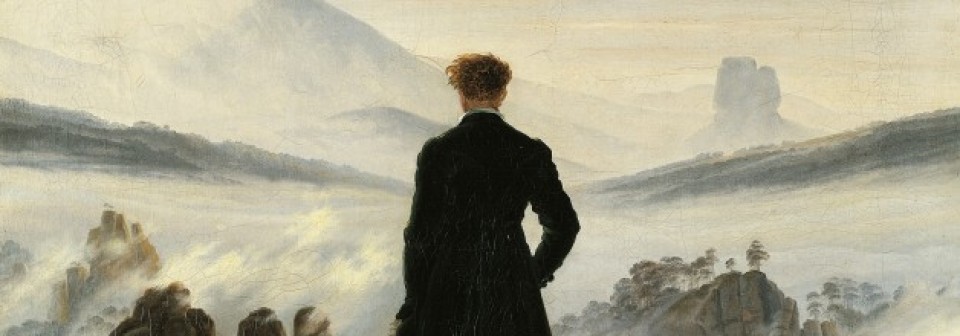Volume 38, Number 1-Spring 2011
Rosemary Lloyd, “Georges Cuvier and the Power of Rhetoric”
Georges Cuvier’s powerful rhetoric and exceptional descriptive talents enabled him to dominate French thinking in the debate between those who were convinced, as he was, that species remained unchanged and those who, like his arch-rival Geoffroy Saint-Hilaire, believed in gradual transformation of species away from the fossil record. Cuvier’s quickness of mind in public debates as well as his ability to bring past ages vividly alive to lay readers exerted a considerable hold over writers, the wider public, and the scientific community. This article explores some of the rhetorical techniques and devices that enabled him to impose his convictions on the nation well beyond the publication of Darwin’s Origin of Species.
Lila Marz Harper, “Reexamining Taxonomy and Gender: T.H. Huxley, G. H. Lewes, and George Eliot View the Medusa”
This article examines the collection of popular natural history essays titled Sea-Side Studies at Ilfracombe (1859), co-written by G.H. Lewes and George Eliot, and the debates over the classification of marine invertebrates in the mid-nineteenth century. In particular, I analyze how the taxonomic reorganization of marine invertebrates undermined assumed concepts of gender in the natural world, as Lewes and Eliot attempt to engage with new research into such topics as the alternation of generations and T.H. Huxley’s proposed reclassification systems. Investigation into invertebrate life cycles and the separation of the coelenterates from the echinoderms mark a major change in the understanding of how life is organized and thus viewed. These debates, as they worked their way into popular culture, increasingly moved natural sciences from more moralistic and ethnocentric approaches, and prepared the ground for Darwin’s argument for natural selection.
James Wynn, “A New Species of Argument: The Role of Mathematics in Darwin’s Origin of Species
This essay recovers Darwin’s efforts to construct quantitative theories of dynamic variation and divergence of character through a close rhetorical examination of his arguments as well as a careful assessment of his reading habits, ideas, and correspondences. The analysis suggests that more credit needs to be given to Darwin as a pioneer of mathematical argument in the study of organic phenomena.
Sara Atwood, “The Soul of the Eye: Ruskin, Darwin, and the Nature of Vision”
John Ruskin’s quarrel with Darwinian theory is often represented as antiscientific and reactionary. Yet Ruskin’s attitude toward Darwinism, like Ruskin himself, was considerably more nuanced and complex, as many modern commentators have recognized. Ruskin was not scientifically ignorant, but he took issue with what he considered the dehumanizing tendencies of modern scientific research; modern science took no account of the soul, reducing all life to nothing more than “germ cells” (27.380). Evolutionary theory seemed to lower mankind, while his life’s work was directed at trying to raise it. Today Ruskin’s difficulties with Darwinism are often discussed in terms of natural theology, natural science, or aesthetics, and there is indeed much to be said on each of these counts: but it can be argued that the deepest roots of his resistance lie in his firmly held conviction of the moral and spiritual significance of sight: “To see clearly,” Ruskin famously declared in Modern Painters 3, “is poetry, prophecy, and religion, – all in one” (5.333). Conversely, “to see falsely is worse than blindness” (7.211). What Ruskin found most offensive in Darwinism was the flawed and potentially destructive vision that it seemed to invite.
Jessica Kuskey, “Bodily Beauty, Socialist Evolution, and William Morris’s News from Nowhere”
William Morris’s News from Nowhere describes a utopian future containing an improved and beautified British race, a detail in the text which is best explained by placing the novel within the context of the evolutionary scientific theory produced within Morris’ late-nineteenth-century socialist circle. Examination of scientific discussions in the socialist periodicals Commonweal and Justice shows evolution and “the survival of the fittest” to be importantly integrated into the group’s socialist theories and reveals their project of articulating a socialist evolutionary theory whose roots can be traced to Engels. These writers argued for a reinterpretation of Darwin’s findings and proposed a new theory of evolution that cohered with socialist political doctrine. Like many other socialist writers in Morris’ circles, his views on evolution seek to denaturalize capitalist competition and class struggle and replace these with socialist cooperation as the next natural stage of human evolution. While evolution is perhaps a minor aspect of Morris’ novel, examination of socialist evolutionary science offers key in-sight to an understanding of late-nineteenth-century British socialism. The project of socialist evolution in fact contains the fundamental contradiction in their overall socialist project: examination of the socialist evolutionary theory developed by writers in Morris’ circle reveals their evolutionary – not revolutionary – socialism.

